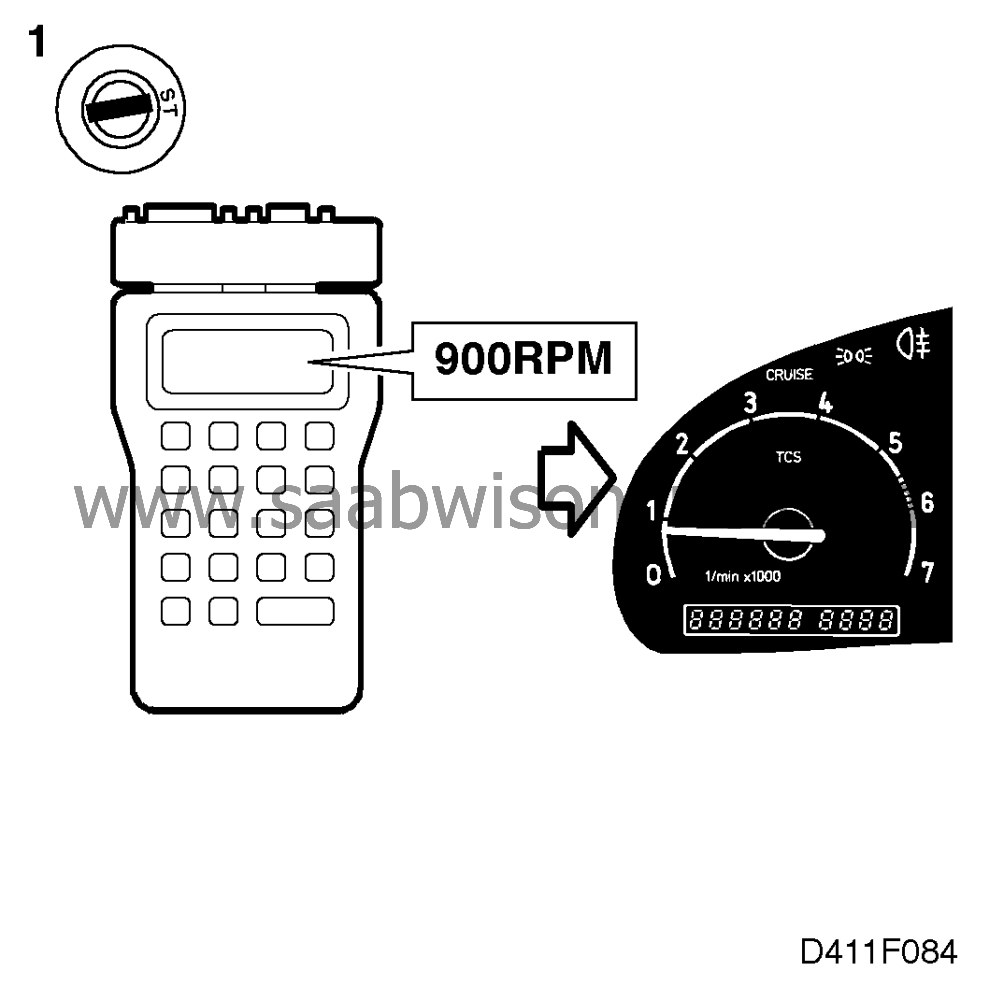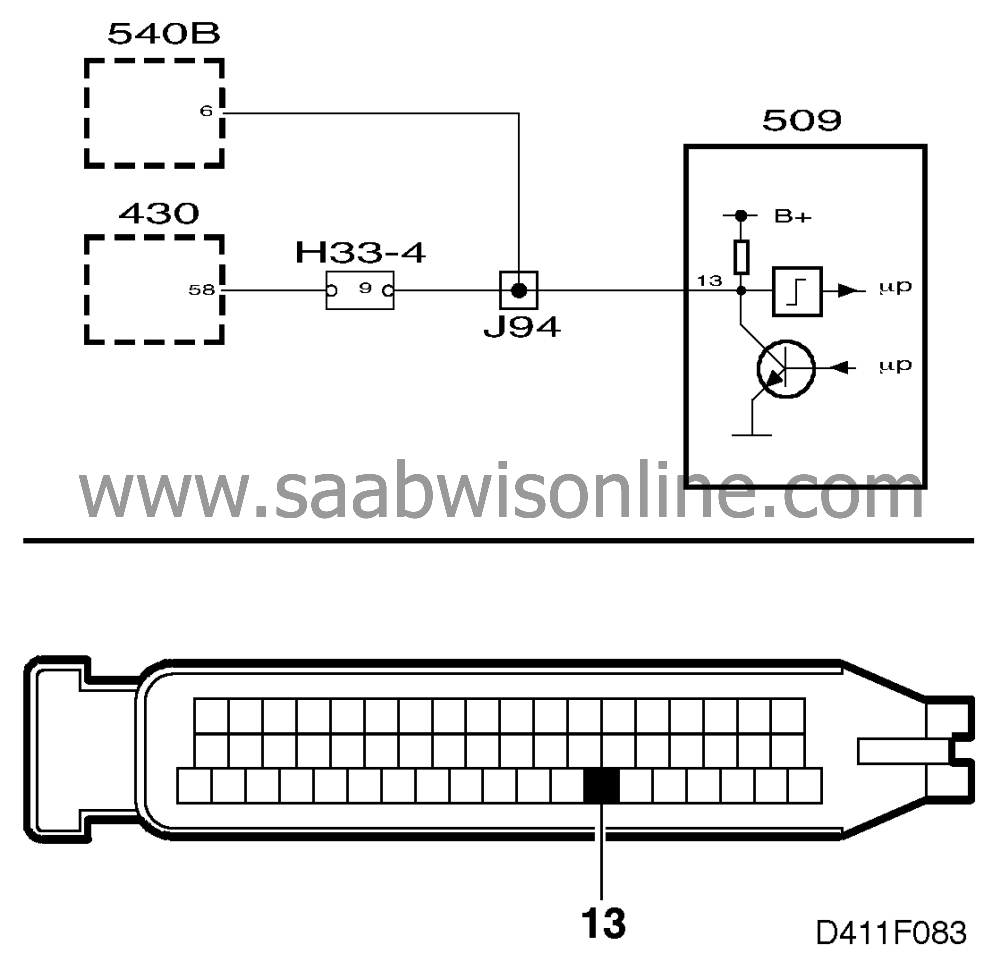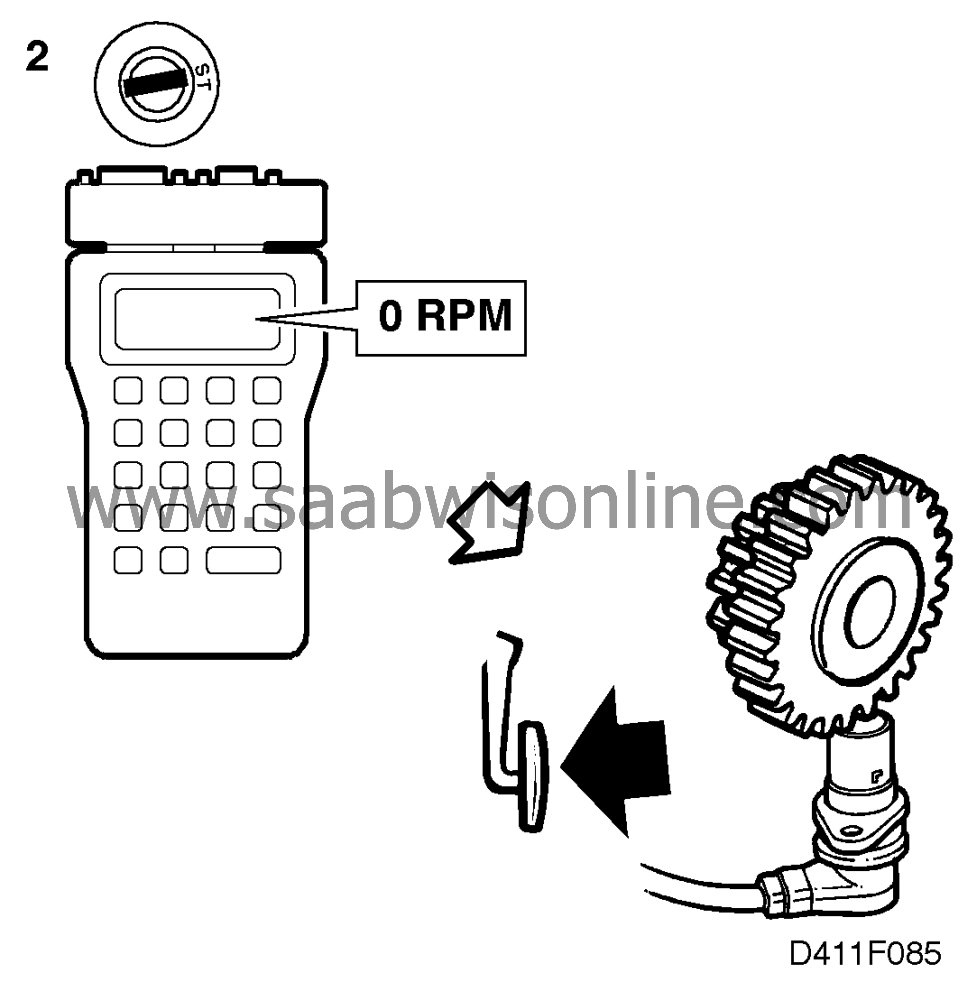P1726 and P1728
Symptom: "CHECK ACS" warning lamp on. The system's emergency program has been activated. Engagement takes place depending on the current position of the throttle and at a higher engine speed than usual.
| P1726 and P1728 |
Engine rpm P1726 Value wrong P1728 Signal wrong
Fault symptom
"CHECK ACS" warning lamp on. The system's emergency program has been activated. Engagement takes place depending on the current position of the throttle and at a higher engine speed than usual.Condition
P1726: A gear is engaged and the clutch is in engagement. Engine speed does not coincide with the input shaft speed or the calculated substitute value. No engine speed signal.P1728: Engine speed is >8000 rpm.
Diagnostic procedure
1 Check engine speed


Connect the Scan tool diagnostics instrument to the car's data link connector. Start the engine and run it at idling speed. Select the "ENGINE SPEED" command in the diagnostic instrument's "READ FUNCTIONS" menu. The diagnostic instrument and the car's tachometer should both show the same engine rpm.
Are the readings on the Scan tool diagnostics instrument and the tachometer identical?
| yes |
Continue with point 2.
| no |
Repair or replace the wiring in question and continue with point 3.
| Important | ||
|
If the engine rpm signal is permanently shorted to ground, the engine will stop within a couple of seconds of starting. |
||
2 Check the clutch

Connect the Scan tool diagnostics instrument and read "DIFFERENCE RPM" under "READ FUNCTIONS". At wide open throttle, with the clutch fully engaged, the value should be 0 rpm.
Is the reading correct?
| yes |
Continue with point 2.
| no |
Change the clutch and continue with point 3.
3 Final check

| - |
Clear the diagnostic trouble code.
|
|
| - |
Perform a drive cycle by driving the car at varying engine rpm and loads for 5 minutes.
|
|
| - |
Check whether the diagnostic trouble code has recurred.
|
|
Has the diagnostic trouble code recurred?
| yes |
Continue as described in the section "Before replacing a control module", see
 .
.
| no |
The steps taken to rectify the fault were correct.


